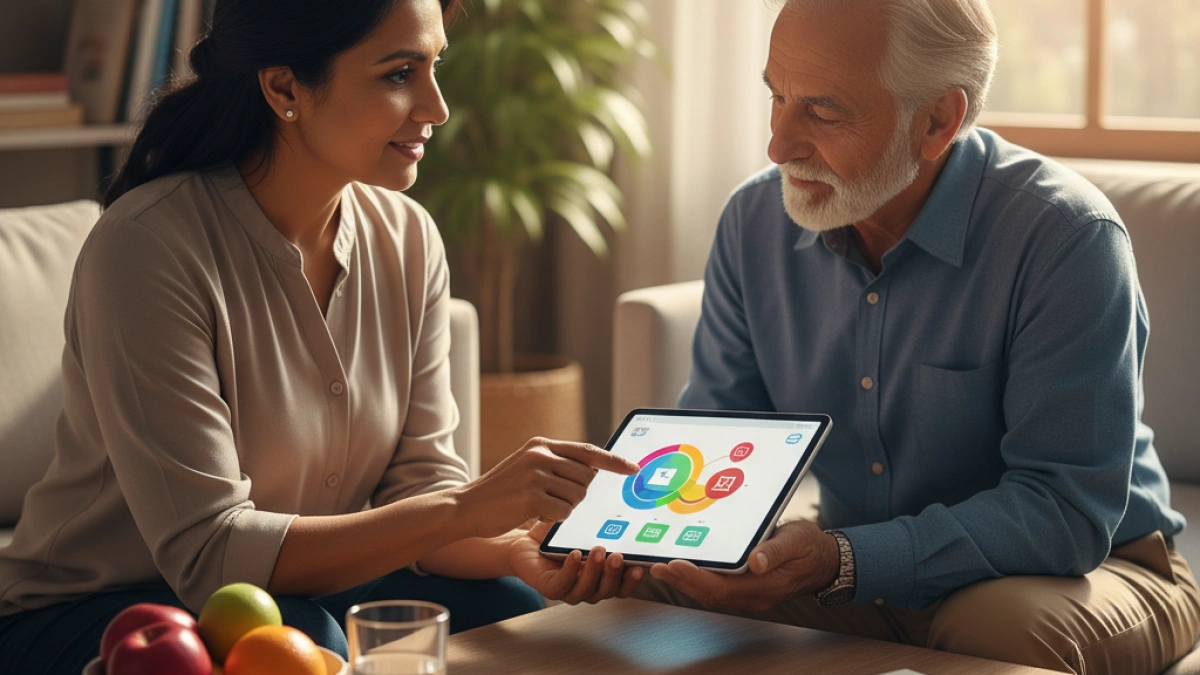Key Knowledge About Type 2 Diabetes for Caregivers

Type 2 diabetes is one of the most prevalent health conditions worldwide and, as such, requires specialized attention. Familiarizing oneself with its management is essential for caregivers and family members accompanying individuals living with this disease. Below are key aspects that should be understood to provide better support.
Understanding Type 2 Diabetes
Type 2 diabetes occurs when the body does not use insulin efficiently. This can lead to high blood glucose levels, which, over time, can cause serious complications. It is essential for caregivers to understand that this disease does not go away, but with proper management, it is possible to maintain a good quality of life.
Risk Factors
Knowing the risk factors is crucial for the prevention and management of type 2 diabetes. Some of the most common include:
- Obesity: A high body mass index (BMI) is one of the main indicators.
- Physical inactivity: Lack of exercise significantly contributes to the development of the disease.
- Family history: A family history of diabetes increases the likelihood of developing it.
- Older age: Older individuals are at a higher risk of developing type 2 diabetes.
Common Symptoms of Type 2 Diabetes
Identifying the symptoms of type 2 diabetes allows for early diagnosis and better management of the disease. Some of the most frequent symptoms include:
- Increased thirst and a constant need to urinate
- Excessive fatigue
- Blurred vision
- Wounds that take a long time to heal
- Frequent infections
It is important for caregivers to be vigilant about these signs and to consult a doctor if they occur.
Importance of Nutrition
Nutrition is one of the fundamental pillars in managing type 2 diabetes. Caregivers should provide healthy food options, including:
- Fruits and vegetables: Rich in nutrients and low in calories
- Whole grains: Promote digestion and provide sustained energy
- Lean proteins: Offer satiety and help in cell regeneration
A proper approach to nutrition can significantly contribute to the control of blood glucose levels.
Read also
Glucose Monitoring
Regular monitoring of glucose levels is essential. Caregivers should be trained to use monitoring devices and recognize when levels are out of range. This will help prevent complications and make informed decisions regarding diet and medication.
Medications and Treatments
Type 2 diabetes usually requires treatment with medications, and it may be necessary to adjust medication according to individual needs. It is crucial for caregivers to be informed about:
- Types of medications used
- Possible side effects
- Importance of adherence to treatment
Regular consultations with a doctor are crucial for adjusting treatment according to the patient's condition.
Conclusion
Caregivers play a vital role in the management of type 2 diabetes. Understanding key aspects of the disease, from nutrition and monitoring to medication, is essential for providing effective support. Continuous education and medical follow-up are valuable tools for improving the quality of life for those living with this condition.
I invite you to continue exploring more news and interesting articles about health and wellness on my blog!











































